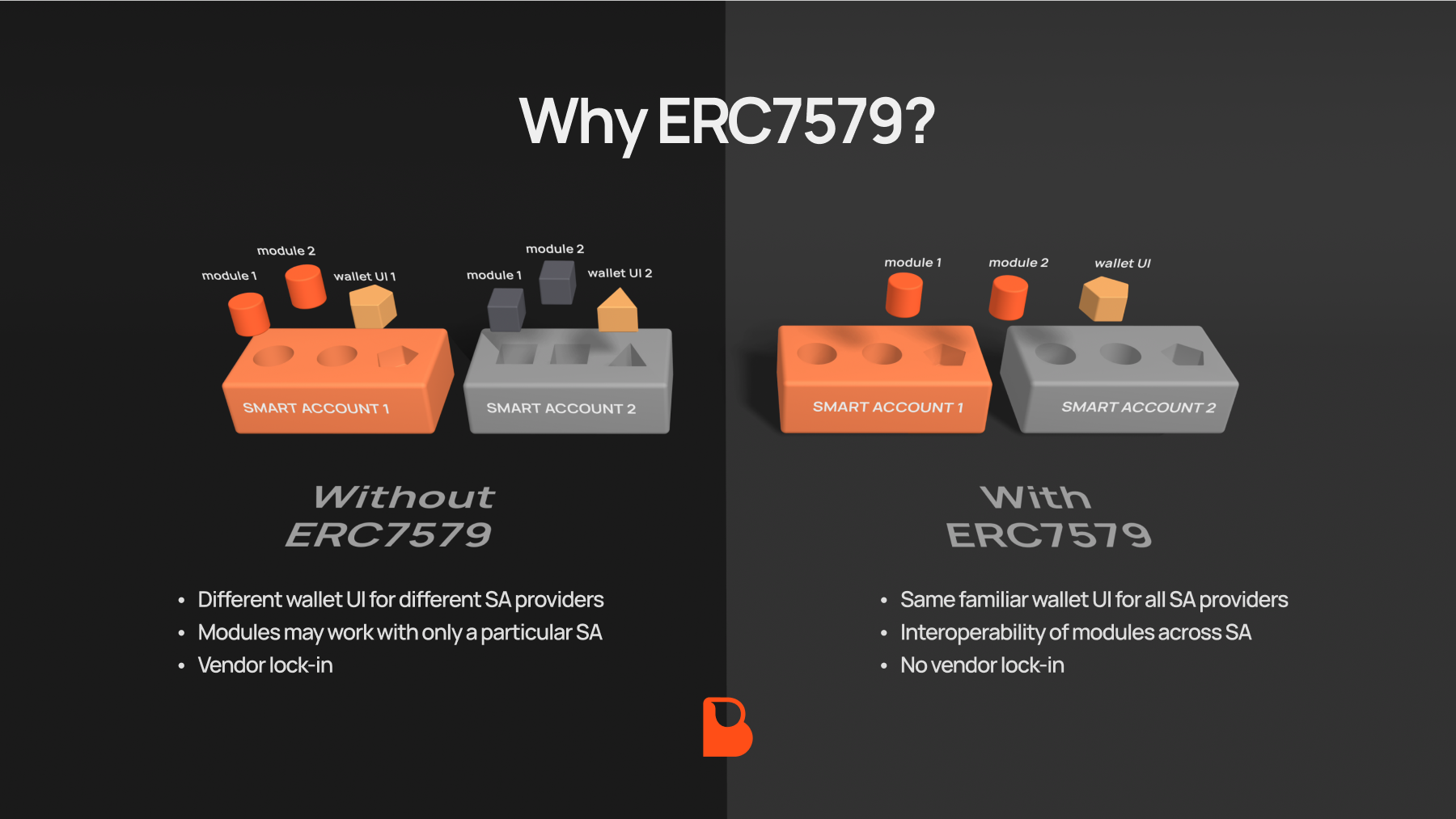-
Notifications
You must be signed in to change notification settings - Fork 1
FAQ
The name "Nexus" is inspired by the concept of a central connection point or hub. In the context of smart contracts, Nexus acts as a central platform that integrates various functionalities, providing a modular and flexible architecture for building and managing smart accounts.
Nexus significantly enhances the user experience (UX) and user interface (UI) in various blockchain applications, especially in sectors like GameFi and decentralized exchanges (DEXs).
For example, imagine playing a blockchain-based game without annoying pop-ups asking for transaction approvals. Nexus makes this possible by allowing seamless transactions, so your gameplay isn’t interrupted.
In decentralized exchanges like Perp DEX, Nexus lets you open a trading session for a specific time. During this session, you can trade freely without needing to approve each transaction. This makes trading faster and more user-friendly.
Tip
Nexus's ability to streamline transactions without repeated approvals vastly improves the overall user experience, especially in interactive applications like gaming and trading.

Yes, you can migrate your existing upgradable smart contract to Nexus. The process involves calling the upgradeToAndCall function with the new Nexus implementation address and any required initialization data. Detailed steps for the migration process can be found in the Nexus Migration Guide.
Important
When upgrading from a non-ERC7579 compatible smart account, you will lose access to the modules already installed. You will need to install them manually or through the migration process when calling the upgradeToAndCall function.
Nexus offers several advantages over traditional smart accounts:
- Modularity: Easily extendable with different modules to add or modify functionalities.
- Security: Built-in security features and robust validation mechanisms.
- Flexibility: Supports various execution modes, making it adaptable to different use cases.
- Gas Optimization: Designed with gas efficiency in mind, ensuring cost-effective operations.
Note
The modular architecture of Nexus allows for continuous upgrades and enhancements without disrupting existing functionalities, ensuring long-term adaptability and security.
ERC7579 provides a standardized interface for modular smart accounts, promoting interoperability and flexibility. It enables the creation of smart accounts with interchangeable modules, allowing for easy upgrades and customization without disrupting existing functionalities.

Nexus supports various types of modules, each serving different purposes:
- Validators: Modules that validate transactions or operations.
- Executors: Modules that execute specific functions or transactions.
- Hooks: Modules that provide additional logic or callbacks during execution.
- Fallback Handlers: Modules that handle fallback scenarios.
Tip
Ensure that at all times, a validation module is present in the Nexus smart account to maintain security and integrity.
Nexus supports multiple execution modes to provide flexibility in how transactions are handled:
-
Single Execution:
- Executes a single transaction.
- Suitable for straightforward operations where a single function call is sufficient.
-
Batch Execution:
- Executes multiple transactions in a batch.
- Ideal for scenarios where multiple operations need to be performed atomically.
-
Default vs. Try/Catch:
- Default Mode: Reverts the entire operation if any transaction in the batch fails.
- Try/Catch Mode: Attempts to execute each transaction and logs any failures without reverting the entire batch.
Note
The executeFromExecutor function is specifically designed for executor modules, allowing them to handle both single and batch transactions with default or try/catch execution modes.
Nexus employs advanced security features such as validation modules, secure execution modes, and integration with Web2 solutions like OAuth and Passkey. These features ensure that transactions are validated and executed securely, reducing the risk of vulnerabilities.
Caution
Modular smart accounts are secure by design, but the security of your account heavily depends on the modules you use. Always verify the security of any external modules before integrating them into your Nexus smart account.
Yes, Nexus can be used for automated tasks such as recurring payments and scheduled transactions. Its modular architecture allows for the integration of automation modules that can handle these tasks seamlessly.
Tip
Automation modules in Nexus can greatly enhance the efficiency of repetitive tasks, freeing up users to focus on more critical activities.
Nexus is designed with gas efficiency in mind. By enabling optimizer settings and conducting regular gas audits, Nexus ensures that transactions are cost-effective. The use of Intermediate Representation (IR) further enhances bytecode optimization, reducing gas costs.
Important
Regular gas audits and optimization practices are crucial for maintaining cost-effective operations in the blockchain ecosystem.
By addressing these frequently asked questions, we aim to provide a comprehensive understanding of Nexus, its capabilities, and its advantages in the blockchain space. For further details and technical specifications, please refer to our documentation.
- Home
- Nexus Architecture
- Access Control
- Execution Framework
- Modules
- Factories
- Migration Guide
- Testing Documentation
- Configuration and Security
- Libraries
- FAQ
- Biconomy Solidity Style Guide
- Security Considerations
- Team
-
Contracts
- Nexus
- Base
- Common
- Factory
- AbstractNexusFactory
- BiconomyMetaFactory
- K1ValidatorFactory
- ModuleWhitelistFactory
- NexusAccountFactory
- Modules
- Utils